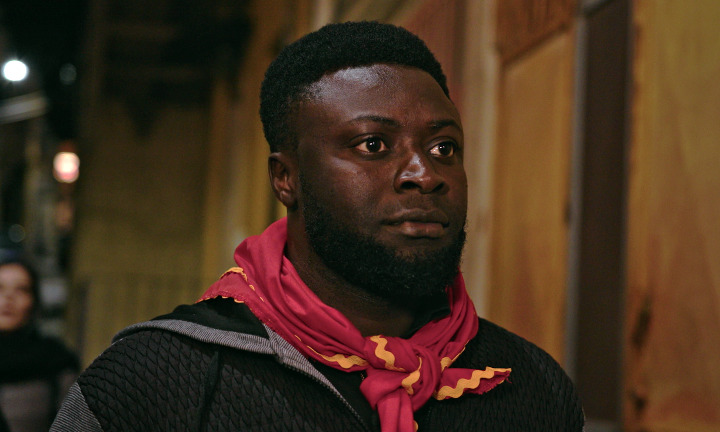Spain, often a first stop for refugees entering Europe, is a country that offers an officially welcoming message to refugees that’s at odds with its relatively low acceptance of new immigrants. Director Juan Antonio Moreno Amador’s film is less concerned with the political contradictions than in the refugee’s stories.
The film’s most distinctive feature is Amador’s jaunty voice-over narration which echoes advertising pitches to Spanish tourists. The centre of the story is a hostel in Seville, a former fancy brothel in the historic, tourist-friendly neighbourhood of Torreblanca, where the residents’ tales form a traveller’s anthology, like The Decameron or The Canterbury Tales.
We meet the sprawling Faras family from Libya, whose 11th child is born during their residency. Another family comes from war-torn Yemen, and we follow their sunny daughter, Omnia, flourishing in a Spanish school with the aid of a kind teacher. Others are fleeing persecution for their sexual orientation: Marouane, a theatrical gay teen from Morocco has dreams of a modelling career; Alma and Marta are a same-sex couple from El Salvador, whose faces are not shown on screen. From Mali, we have Madi, a young accountant who came by dinghy across the Mediterranean. From Venezuela, there’s Jorge, a businessman alienated from his family, and Amelia, a retired teacher, escaping from their ruined country.
The natives of Seville are shown as curious and friendly, stereotypically obsessed with music, festivals and marching bands. But as the film goes on, the film’s jaunty tone shifts and falters. We see the rise of Spain’s anti-immigrant Vox party and as the characters leave the old brothel into the real world, their stories divide. Some decide to move on to another country; one is trapped in quasi-legal farm labour; another is homeless. The narrator-filmmaker apologizes for his assumptions, and frets about his disappearing subjects. The stories remain unresolved, he says, because stories never really end. In fact, Welcome to Spain ends, not by trailing off as a window into passing lives, but by crashing into narrative wall, with the arrival of the coronavirus pandemic and the country’s social and political lockdown.
Welcome to Spain premieres at Hot Docs on April 29, 10 a.m.












